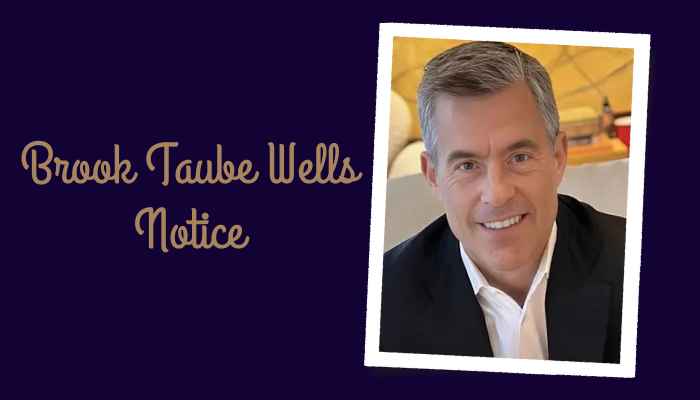It was an ordinary morning when Brook Taube, a seasoned financier, received the Wells Notice that would significantly impact his career. As he sat at his desk in his New York office, with the city bustling outside, Taube couldn’t help but reflect on the years of dedication, late nights, and complex deals that had defined his journey in the financial world. This Wells Notice, a formal communication from the Securities and Exchange Commission (SEC), was not just a legal document; it was a pivotal moment that would challenge Taube’s professional principles and strategies.
What is a Wells Notice?
A Wells Notice is a formal notification issued by the SEC to inform individuals or entities that the agency is considering bringing an enforcement action against them. Named after John A. Wells, a former SEC chairman, the notice is a critical step in the SEC’s investigation process. It provides the recipient with an opportunity to respond to the allegations and present their case before any formal charges are brought. The Wells Notice is not a conclusion of guilt but rather a significant indication that the SEC has found sufficient grounds to consider enforcement action.
Brook Taube’s Position in the Financial World
Brook Taube is a well-respected figure in the financial industry, known for his leadership in investment firms and his extensive experience in asset management. Over the years, he built a reputation as a strategic thinker with a keen eye for investment opportunities. His career was marked by successful ventures and significant contributions to the firms he led. However, the receipt of the Wells Notice signaled potential challenges to his reputation and raised questions about the compliance and regulatory practices of the institutions associated with him.
The Impact of the Wells Notice on Brook Taube
Initial Response and Strategic Preparation
Receiving a Wells Notice is a daunting experience for any financial professional, and Brook Taube was no exception. The first step for Taube was to assemble a team of legal experts and financial advisors to thoroughly review the allegations outlined in the notice. This process required a meticulous examination of the transactions under scrutiny and a careful assessment of the regulatory framework involved. Taube’s team worked diligently to gather documentation, analyze the SEC’s claims, and prepare a comprehensive response. The initial phase of this process was crucial, as it set the tone for the subsequent legal and strategic decisions.
Reputational Risks and Public Perception
In the world of finance, reputation is everything. The Wells Notice posed an immediate threat to Brook Taube’s standing in the industry. News of the notice quickly spread among investors, partners, and stakeholders, leading to concerns about the stability and compliance of the firms he was associated with. Taube recognized the potential damage to his reputation and understood that managing public perception would be a critical aspect of his response. The challenge was not only to address the legal implications of the notice but also to reassure stakeholders that his businesses remained sound and compliant.
The Legal and Strategic Response
Building a Strong Defense
Taube’s legal team played a pivotal role in crafting a defense strategy that aimed to demonstrate compliance with regulatory standards. This involved presenting evidence that countered the SEC’s claims and highlighting any mitigating factors that could influence the agency’s decision. The defense strategy also included negotiations with the SEC to explore the possibility of a settlement or a reduced enforcement action. Throughout this process, Taube remained deeply involved, ensuring that every aspect of the defense was aligned with his commitment to ethical business practices.
Communicating with Stakeholders
Transparency was key during this challenging period. Taube prioritized clear and consistent communication with investors, partners, and employees. Regular updates were provided to keep stakeholders informed about the situation and the steps being taken to address it. This approach helped to maintain trust and mitigate potential fallout from the Wells Notice. Taube’s efforts to engage with stakeholders and address their concerns demonstrated his dedication to maintaining the integrity of his business operations.
Brook Taube’s Strategic Adjustments Post-Wells Notice
Reevaluating Business Practices
The Wells Notice served as a catalyst for Brook Taube to reevaluate and strengthen the compliance frameworks within his business operations. This included a thorough review of internal controls, risk management practices, and regulatory compliance procedures. Taube proactively enhanced transparency at all organizational levels, ensuring his businesses exceeded regulatory standards and fostered robust compliance. The experience underscored the importance of having robust compliance measures in place to prevent future issues.
Emphasizing Ethical Standards
In response to the Wells Notice, Taube placed a renewed emphasis on ethical standards and corporate governance. He understood that high ethical standards were crucial for both compliance and creating a sustainable, reputable business. Post-Wells Notice, Taube prioritized creating a culture of integrity and accountability as a key element of his strategy. This shift aimed not only to address immediate concerns but to establish a lasting foundation for ethical business practices.
The Resolution and Lessons Learned
Reaching a Resolution with the SEC
After months of negotiations and legal proceedings, Brook Taube eventually reached a resolution with the SEC. While the outcome was not entirely favorable, it allowed him to move forward and refocus on his business ventures. The resolution closed a challenging chapter for Taube, offering key insights into the complexities of financial regulation. The experience highlighted the importance of proactive risk management and the need for continuous adaptation to evolving regulatory landscapes.
Broader Implications for the Financial Industry
The case of Brook Taube and the Wells Notice had broader implications for the financial industry. It served as a reminder that even the most experienced professionals must remain vigilant and committed to compliance. The incident underscored the need for firms to continuously update their compliance frameworks and prioritize ethical practices. It also highlighted the importance of transparency and effective communication with stakeholders during times of crisis. The Brook Taube Wells Notice case highlighted the essential role of regulatory compliance in upholding trust and stability in finance.
Conclusion
The Wells Notice was a critical test of Brook Taube’s resilience, ethics, and skill in navigating complex regulatory challenges. Through strategic adjustments, meticulous planning, and a renewed focus on compliance, Taube emerged stronger and better equipped for future challenges.
This experience highlights the financial industry’s need for strong compliance, integrity, and effective stakeholder management. Taube’s journey highlights the importance of ethical practices and transparency in navigating regulatory challenges and shaping future compliance.




